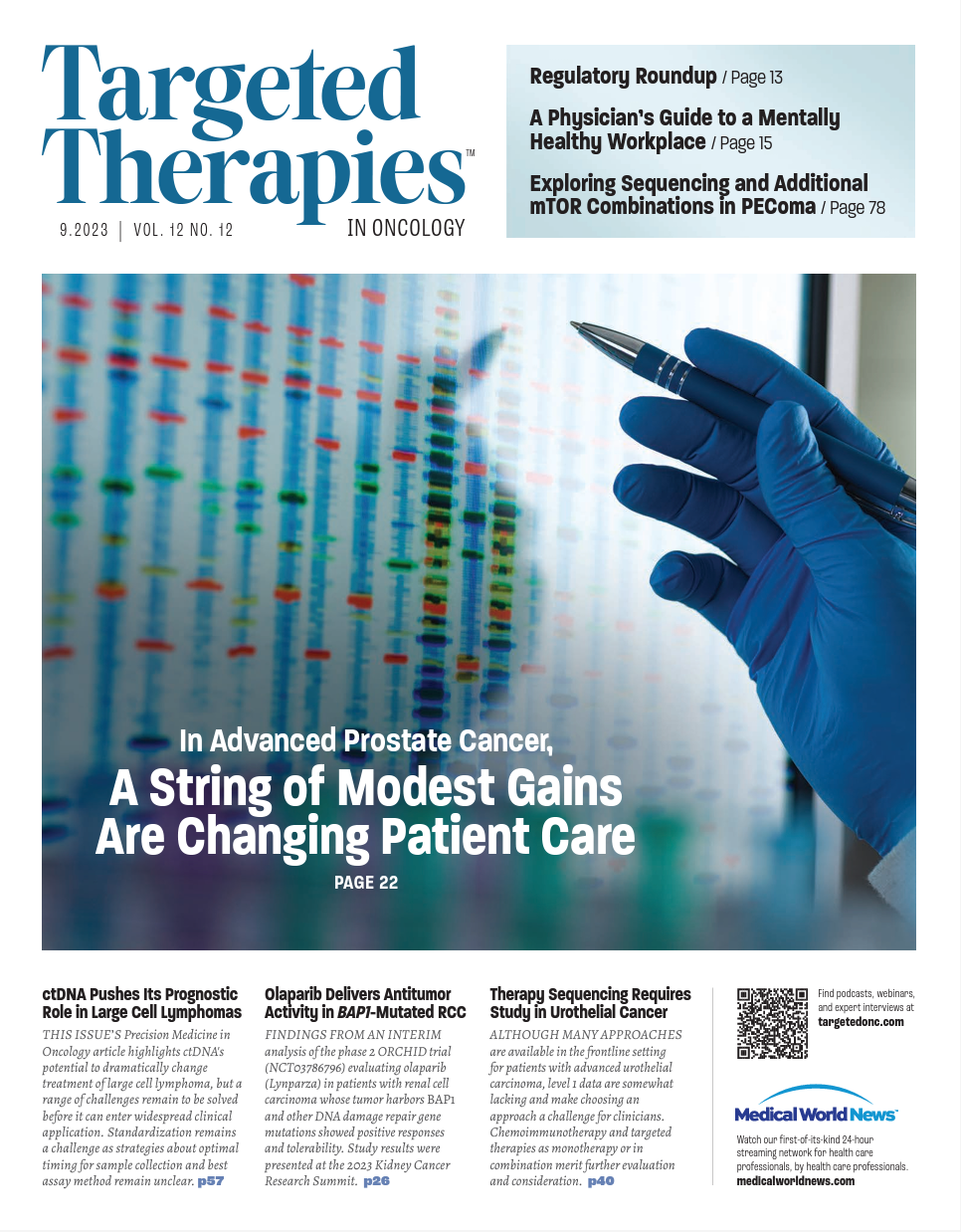Stereotactic Radiosurgery Plus Immunotherapy, Safe for Metastatic NSCLC
A recent phase 1/2 study revealed promising results, with an estimated 4-month intracranial progression-free survival rate of 70.7% with stereotactic radiosurgery with the combination of nivolumab and ipilimumab.
Further studies will evaluate intracranial activity, as well as the safety with using stereotactic radiosurgery simultaneously with radiotherapy.

Pairing stereotactic radiosurgery (SRS) with the combination of nivolumab (Opdivo) and ipilimumab (Yervoy) proved to be a safe and potentially effective approach for treating brain metastases in patients with non–small cell lung cancer (NSCLC), according to a recent phase 1/2 study (NCT02696993).1
The study revealed promising results, with an estimated 4-month intracranial progression-free survival rate of 70.7%.
The safety cohort (phase 1) of this non-randomized, open-label trial was designed to evaluate the dose-limiting toxicities (DLTs) of coinciding radiation and immune checkpoint inhibitor therapy. Prior to this study, retrospective data on safety were limited regarding immunotherapy with intracranial radiation, and for patients recently diagnosed with brain metastasis.1
The median follow-up was 2 months (range, 9.7-24.) with a median interval of days between systemic therapy and radiation therapy.1 Within the phase 1 trial involving 13 enrolled patients, a subset of participants discontinued their participation before the 8-week assessment. The reasons for discontinuation varied: for 1 patient the cancer spread to the brain, requiring whole-brain radiation therapy (WBRT); another experienced disease progression outside the brain; and a third patient died due to sepsis which was unrelated to the study treatment.
The median follow-up time from initiation of the study was 9.7 months, (range, 1.2-25.8). Most patients were women (62%, n = 8), and the median age was 6 years, (range, 47-81). All participants had a history of smoking, and patients (23%) were current smolers. Among the 13 patients, 10 (77%) had an ECOG performance status score of 0. All patients exhibited progressive extracranial disease. No patients displayed activating EGFR mutations or ALK or ROS1 translocations. A detailed analysis of PD-L1 expression revealed 46% (n = 6) of patients with tumors having minimal (less than 1%) PD-L1 expression, 15% (n = 2) with 1% to 49%, 31% (n = 4) with greater or equal to 50%, and 1 patient with an unknown tumor -1 status due to inadequate tissue for testing.1
Of the 13 patients, 92% eperienced adverse events (AEs) related to the study grade 1 (56.8%), grade 2 (18.2%), grade (1%), and grade 4 (2%). most common grade AEs (15%) were elevated alanine aminotransferase levels. The primary grade 4 (15%) identified was cerebral edema, which included 1 instance as an intracranial DLT.
In the 10 patients whose progress was evaluated, no cases of serious AEs were identified beyond the brain. One patient experienced a grade 5 AE which was hemophagocytic lymphohistiocytosis syndrome. Treatment discontinuations resulted from AEs such as grade adrenal insufficiency, grade 4 cerebral edema, and grade 2 lower limb muscle weakness.
As of August 1, 2020, 6 of the 13 patients died, and the median overall survival was not reached.1 Investigators report that concurrent use of ipilimumab plus nivolumab with SRS for brain metastases from NSCLC is attainable and meets the end point for safety1 based on the following events only 1 patient experienced the intracranial DLT grade 4 event, allowing the continuation to phase 2, as the predetermined stopping criteria was not met; 31% of patients had grade 3 AEs connected to the treatment, respectively and only 15% of patients experienced grade 4 cerebral edema, according to Common Terminology Criteria for Adverse Events.
Going forward, these findings shed light on the spectrum of AEs associated with this regimen.1 Although the results with this combination treatment have been determined as safe, caution should be used when interpreting due to the increased use of SRS in patients with multiple brain metastases.1 Further study is required to evaluate intracranial activity, as well as the safety with using this treatment simultaneously with WBRT.
REFERENCE
1. Altan M, Wang Y, Song J, et al. Nivolumab and ipilimumab with concurrent stereotactic radiosurgery for intracranial metastases from non-small cell lung cancer: analysis of the safety cohort for non-randomized, open-label, phase I/II trial. J Immunother Cancer. 2023;11(7): e006871. doi:10.1136/ jitc-2023-006871

Gasparetto Explains Rationale for Quadruplet Front Line in Transplant-Ineligible Myeloma
February 22nd 2025In a Community Case Forum in partnership with the North Carolina Oncology Association, Cristina Gasparetto, MD, discussed the CEPHEUS, IMROZ, and BENEFIT trials of treatment for transplant-ineligible newly diagnosed multiple myeloma.
Read More
Key Trials From ASH 2024 Impact Treatment for Plasma Cell Disorders Going Forward
February 20th 2025Peers & Perspectives in Oncology editorial board member Marc J. Braunstein, MD, PhD, FACP, discussed the significant advancements in multiple myeloma treatment at the 2024 ASH Annual Meeting and Exposition.
Read More